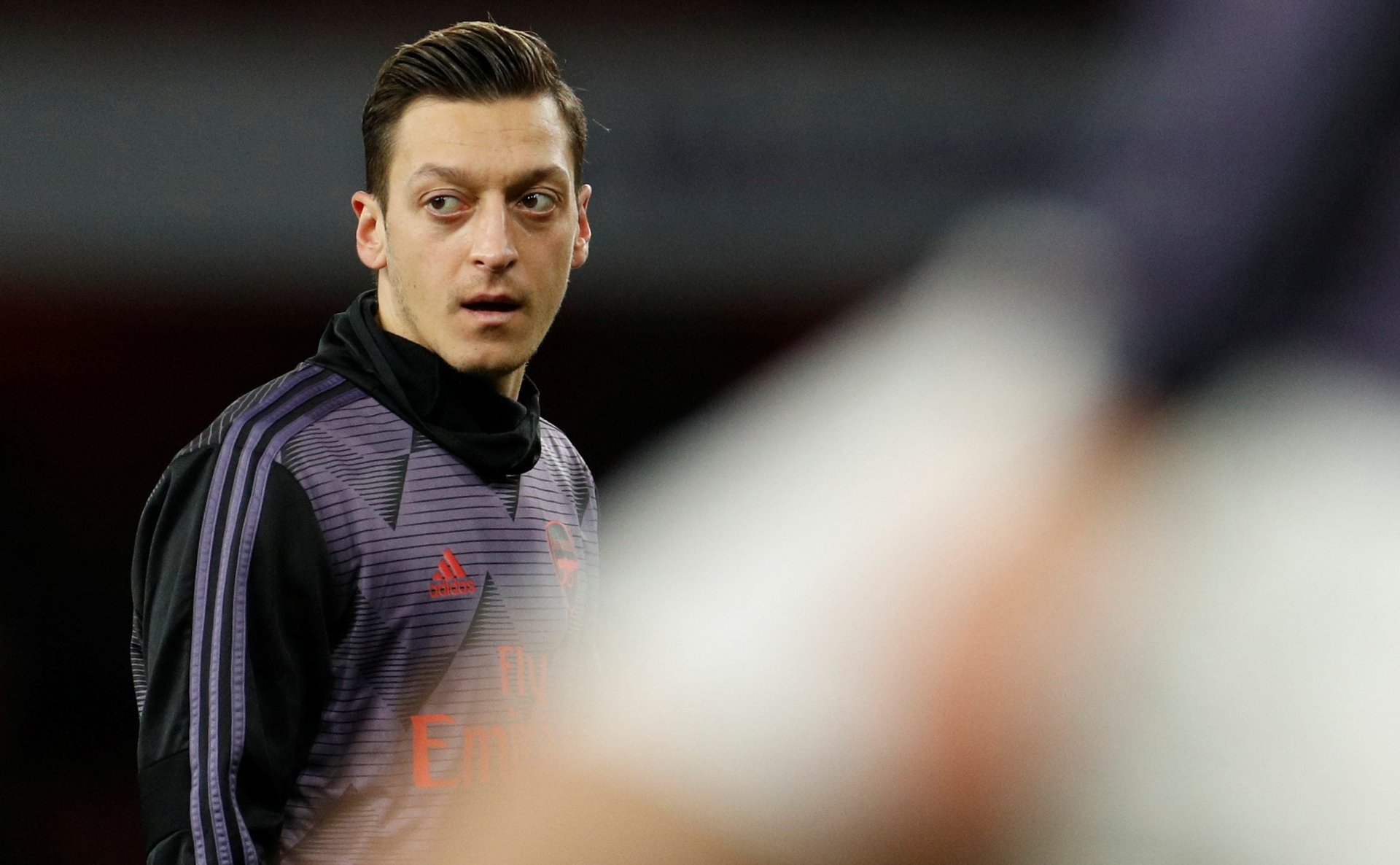People in China don’t quite know why they are boycotting Arsenal player Mesut Özil
The backlash in China that followed Arsenal star Mesut Özil’s criticism of the country’s repression of Uyghur Muslims followed a familiar playbook—broadcasters pulled the team’s games, state media accused him of hurting the feelings of the Chinese people, and angry fans hurled abuse at the player on social media and posted photos of them burning soccer jerseys.


The backlash in China that followed Arsenal star Mesut Özil’s criticism of the country’s repression of Uyghur Muslims followed a familiar playbook—broadcasters pulled the team’s games, state media accused him of hurting the feelings of the Chinese people, and angry fans hurled abuse at the player on social media and posted photos of them burning soccer jerseys.
It was clear, however, that many people didn’t know why exactly they were meant to be upset at Özil in the first place.
The Arsenal midfielder, a German of Turkish descent, posted a Turkish poem to his Instagram and Twitter accounts on Friday (Dec. 13) that called out China’s treatment of its Muslim minority in the far western Xinjiang region—where it’s estimated over a million Uyghurs and other minorities are being held in detention camps—as well as the pervasive silence (paywall) from Muslims worldwide on the issue. In his post, Özil also used the term East Turkestan to refer to the region, the term preferred by those who support self-determination for Xinjiang. “The men are forced into camps and their families are forced to live with Chinese men. The women are forced to marry Chinese men… But Muslims are silent,” according to a translation of the poem published by the Guardian.
China has defended the detention camps as “vocational training schools” necessary in the region’s fight against Islamist extremism, and has in recent months mounted a full-throated campaign to push back against critics worldwide, with the terrorism justification widely embraced by Chinese citizens. However, the details of Beijing’s campaign in Xinjiang are still censored in China, highlighting the government’s balancing act when it chooses to stoke the flames of nationalism.
Most Chinese media outlets, for example, only describe Özil’s remarks as “highly inappropriate” and “concerning Chinese sovereignty” without elaborating or referencing excerpts of the poem he posted. Dongqiudi, a Chinese soccer news app, issued a statement (link in Chinese) on social network Weibo clarifying that it did not translate Özil’s words due to the “high sensitivity” of the remarks, while state broadcaster CCTV avoided mentioning the player’s comments on the camps and instead focused on his use of “East Turkestan,” accusing him of supporting separatism and extremism. The Global Times, a nationalistic tabloid, said it would not translate the remarks because the website does not want to “publicize Özil’s opinions” (link in Chinese).
That’s led to confusion on the Chinese internet. “What exactly have you said?” one user commented under a post on Özil’s official Weibo account, with the comment being upvoted thousands of times. “Why can’t media translate the full remarks? It feels like giving someone a death sentence without announcing their charges,” said another user. A translation of Özil’s remarks that was posted on Weibo by Hu Xijin, the outspoken editor of the Global Times, can no longer be found. Some Chinese news outlets such as The Paper have republished (link in Chinese) the post, which can still be accessed.
Chinese authorities have had to dial back similar nationalistic campaigns against foreign targets in recent months. For example, after NBA manager Daryl Morey’s show of support for the Hong Kong protests led to a boycott in October against not only his team, the Houston Rockets, but against the NBA more broadly, China reportedly told state media later to tone down its criticisms against the league, possibly because it worried the spat could harm its trade negotiations with the US. More recently, China’s attempt to drum up nationalistic fervor to combat the growing international scrutiny over Huawei also ended up backfiring as citizens, unwilling to go along with the country’s orchestrated propaganda blitz to mark the one-year anniversary of the arrest of CFO Meng Wanzhou in Vancouver, voiced their discontent instead over Huawei’s unjust treatment of workers on social media. Public opinion on Xinjiang certainly appears to be strongly supportive of the government’s narrative so far, but the government knows well that allowing citizens unfettered access to information comes with risks.